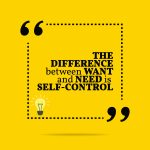EPISODE SUMMARY:
In Season 2 Episode 7 of the Eudo Podcast, Dr. Paul M. Gould discusses the virtue of courage – how our culture understands courage and Christians should understand courage.
EPISODE NOTES:
What is the culturally dominant view of courage?
The dominant view of courage in our disenchanted world consists of following your heart; it is to get in touch with your inner self and to be true to it. To be courageous is to overcome fear. But fear of what, exactly? The fear we are to overcome through the virtue of courage is the fear of being inauthentic. The fear of failing to be true to one’s inner voice. So, on this view, there is a certain way to be human: my way. I’m called to live my life and not anyone else’s. If I’m not true to myself, then I’ve missed the point to life. Let’s call this the “Disney Conception of Courage” and the good life: just “follow your heart” and you’ll find happiness.
Unfortunately, this modern conception of courage as a quest for authenticity is too thin of a reed to sustain the moral life.There are two problem with the Disney Model and the modern quest for authenticity.
- First, in seeking to be true to self, one elevates the love of self as the highest form of love.
- Second, the modern conception of courage as “being true to your inner voice” is problematically subjective – without an objective vision of the good life or a concept of human nature as it ought to be that is grounded in external reality, anything goes.
How can we begin to understand this virtue from a Christian perspective?
“Courage is the virtue most directly concerned with strength and weakness, power and vulnerability, life and death.” – Rebecca Konyndyk DeYoung
It is the habit of character “that enables a person to face difficulties well.” – Karen Swallow Prior
Living in a fallen world requires courage. We are finite and fragile, yet endowed with powers of mind, soul, and body. We are vulnerable to the world around us and each other, yet we have within us the ability to accomplish feats of great courage, valor, and love. We are living beings—yet physical life is fleeting—a mere moment from the perspective of eternity. Yet, even in our frailty and finitude, we matter to God. And our lives matter too.
Scripture encourages us to be courageous. As he begins his conquest of the promised land, Joshua is commanded to be “strong and courageous” in Joshua 1:9. Christians everywhere are called to be “imitators of Christ” in Ephesians 5:1 as we “fight the good fight of the faith” as Paul implores of Timothy in 1 Timothy 6:12.
In order to better understand the virtue of courage, we need to explore three underlying and connected concepts: fear, love, and power. Let’s begin by noting the connection between courage and fear:
Fear and Courage
The virtue of courage has to do with our regulation of the emotion of fear. A courageous act is not an act performed in the absence of fear, rather one is courageous if he or she can master fear. So, what is fear? Fear is a natural emotion that arises within us when the things we want or need are threatened or blocked. The courageous person is one who has been trained to handle fear well, and this training takes place through habituation, as we learn to walk by faith to overcome evils that threaten goods that we care about in the world.
Courage and Love
Love plays an essential role in courageous acts and in the cultivation of the virtue of courage. We act courageously because we want to protect, in the face of evil, some good that we love. It is with this connection between courage and love, that we see the importance of having rightly ordered loves. If we love ourselves more than anything else, we’ll fear anything that gets in the way of us “following our own heart.” But that means we’ll be tempted to use others to achieve our own ends and ultimately, we’ll abuse others to achieve our own ends. Moreover, if we love ourselves more than anything else, then our death truly will be our greatest fear and the thing we seek to avoid at all costs.
Courage and Power
In exploring the connection between courage and love, we also see the connection between courage and power. The sort of courage on display in movies exemplifies human strength and power to overcome evil. However, on this familiar picture of courage, there is a danger lurking under the surface. The worry is that it glorifies human power and its ability to overcome evil on its own strength, often without the need of others. But, as Rebecca Konyndyk DeYoung reminds us in her essay on courage, “Human power to overcome evil and death is so inadequate.” The problem is that the power that helps us become courageous is not a power of body, rather it is a strength of soul—and the power of love—that fuels courage.
CONCLUDING REMARKS:
What are some practical suggestions for how to become courageous followers of Christ?
First, pray daily—and this is a scary prayer—that self-denial would become natural in your life.
Second, structure the core of your soul with Jesus’ teaching. Spend time in the Gospels, memorize his teachings, follow in his steps and s we structure our soul with the teaching of Jesus, we will be transformed.
Finally, learn to be quiet.We do need to listen in order to live courageously and act justly in love. But the voice we need to listen to is not our own, but God’s. Learn to be receptive to the Lord and to move toward being in a place of releasing.
In being nourished daily by God’s spirit and God’s word, we develop true strength of character—spiritual and moral strength—so that our heart is truly whole and we are able to face with true courage the hard circumstances of life in our journey toward God.
RESOURCES MENTIONED:
- Baum, L. Frank, The Wonderful Wizard of Oz. www.kancoll.org/books/baum
- DeYoung, Rebecca Konyndyk. “Courage,” in Being Good: Christian Virtues for Everyday Life, eds. Michael W. Austin and R. Douglas Geivett. Grand Rapids, MI: Eerdmans, 2012.
- McInerny, David. “Fortitude and the Conflict of Frameworks,” in Virtues and Their Vices, eds. Kevin Timpe and Craig A. Boyd. Oxford: Oxford University Press, 2014.
- Prior, Karen Swallow. On Reading Well. Grand Rapids, MI: Brazos, 2018.






